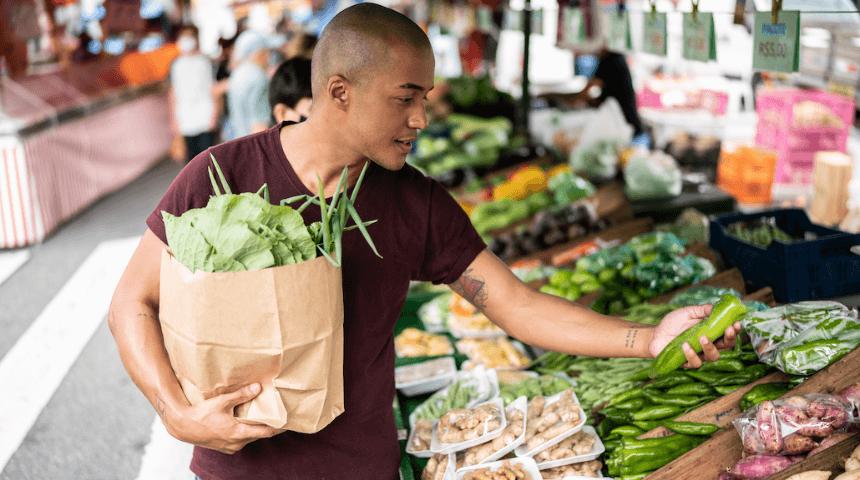A relatively new trend, Americans are returning to home gardening to increase the availability of fresh produce. Home gardening provides many benefits; most importantly, it’s good for your health! Eating fresh produce reduces the risk of chronic disease, while gardening improves mental health and also is a good form of exercise. Additionally, gardens support sustainability and serve as an educational tool for children.
There are many general online resources for planting a vegetable garden, but it is important to keep in mind the growing conditions for different regions of the country. Florida’s unique environment requires direction from experts with the local extension service, who serve as a valuable resource when starting a garden. From learning if you are allowed to grow a garden in your community to foodscaping (edible landscapes), the University of Florida's Institute of Food and Agricultural Sciences Gardening Solutions Program provides an in-depth guide to gardening in Florida. The online program educates consumers on the what, where, when and how of gardening in the Sunshine State.
The Where
Determining available space helps dictate the location and type of garden you create. It is important to take into consideration space, lighting, airflow and soil type. With limited space, container gardening may be the appropriate choice. A larger outdoor area may lend itself to traditional gardening, while alternative options also exist to try something different such as raised beds or hydroponic gardening.
For Smaller Spaces
-
Container Gardening: Perfect for smaller spaces, container gardening allows you to grow plants in mobile containers instead of planting in the ground. Container gardens offer the flexibility to garden on porches or patios and can be portable enough to move around to catch the light. Make sure the size of the container allows the vegetable plant room to grow fully.
-
Window Box: A smaller version of a container garden, this one typically sits outside a window. Perfect for smaller plants like herbs, a window box planted with basil, rosemary or thyme creates a beautiful, edible garden.
For Larger Spaces
-
Raised Bed: This style of gardening involves creating a soil-based bed, raised above the ground and enclosed with a frame. The beds, usually 6-24 inches deep, tend to increase productivity of the plants and are lower in maintenance compared to a traditional garden.
Another type of raised bed, square foot gardening uses a 4-foot-square box divided evenly by 1-foot squares of planting areas. The design is perfect for complementing small landscapes and provides a high yield of vegetables from a small garden space.
-
Hydroponic: From buckets to baby pools, hydroponic gardening uses soil-free containers to create a gardening alternative. This nutrient-water based system is free from weeds and other pests usually found in soil gardening. Lettuce, greens, kale and chard flourish in the soilless conditions. Although setup might take some time, overall care is easy because watering and weeding are not needed.
The What, When and How
Deciding what plants you want to grow and when to plant is a critical piece to gardening success. Choosing vegetables that thrive in Florida soil during the right planting season helps to ensure a healthy yield.
Plant and grow family favorites like beans and cucumbers in the warm season and then switch to cool season veggies like broccoli and lettuce. Follow planting guides with proper spacing and seed depth to grow healthy plants. Once the garden is planted, routine maintenance includes fertilizing, regular watering and weeding to help plants mature and fully produce.
Plan to wait at least 6 weeks for the plants to grow to full maturity before you enjoy the rewards of your hard work. To preserve freshness, harvest vegetables early in the day and store as soon as possible. Clean produce thoroughly with water to remove germs and debris before eating or storing.
Home gardening is a rewarding experience resulting in produce to share with family and friends. Although potentially labor intensive at the beginning, the long term health benefits and feelings of accomplishment make a garden a worthwhile addition to your home.
Choose to Stay in Touch
Sign up to receive the latest health news and trends, wellness & prevention tips, and much more from Orlando Health.
Sign Up










